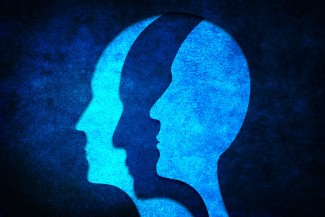According to the criteria listed in the DSM-5 (the 5th Edition of the Diagnostic and Statistical Manual of Mental Disorders), depression is defined as a state of sadness or apathy (loss of interest and/or motivation).
Diagnosing Depression
Rumination is defined as an inability to “change one’s mind”, the patient remains “fixated” on the same negative thoughts.
Our emotions change over time. This might seem obvious, but precisely understanding these variations, their dynamics, and the regions of the brain involved is of major importance from a therapeutic perspective. Emotional fluctuations are a key characteristic of several mental health disorders such as depression. When we experience an emotion, we do this in two successive phases. First, the triggering of the emotion, which can be sudden or gradual. We refer to this as the “explosiveness” of the emotion. Then comes the emotional compensation phase. This involves the intensification or attenuation of the emotion over time, assessed by its degree of “accumulation”.
Devaluation – or “negative affects” – in self-perception is often altered, and perhaps even more so in people with suicidal tendencies. There is a correlation between self-perception and the level of depression.
These “negative affects” are often accompanied by a lack of “positive affects”, which manifests in an inability to experience enjoyment, to have willpower, and to take action.
The latest findings in neuroscience suggest that depression is a motivational disorder, and it thus affects the brain networks involved in decision-making and in assessing the cost/benefit ratio of the effort required.
When we have to choose between several actions or decide to make an effort, our decision is based on the relative weight of two factors: the benefits, which is the reward we can obtain or the loss we can avoid, and the costs, in particular the effort required.
The origin of motivation disorders could lie either in a decrease in sensitivity to rewards or losses, or in an increase in sensitivity to effort. These two mechanisms undoubtedly coexist in the same patient to varying degrees. A depressed patient might, for example, be unable to join friends for an outing, either because the reward, the enjoyment of being with loved ones, has been eliminated, or because the cost of the actions required before going out, such as getting ready, getting dressed, and traveling to the restaurant, has increased.
At Paris Brain Institute
The Cognitive Control – Interoception – Attention team led by Philippe Fossati and Liane Schmidt showed in 2017 that differences in the explosiveness of emotional triggering are linked to activity in the medial prefrontal cortex. This region is believed to be involved in self-perception. Its activation could therefore reflect the difference between the evaluation given by others and the idea that participants have of themselves. The differences in accumulation are linked to the activation of the posterior insula, a region known to play a key role in the integration of emotional signals. These findings could have implications for the treatment of mental health disorders.
The Motivation, Brain and Behavior team led by Mathias Pessiglione, Jean Daunizeau and Sébastien Bourret studies apathy and motivation from different angles. Dopaminergic and noradrenergic neurons play an important role in motivation. Through a behavioral study, researchers have shown that dopaminergic neurons are involved in decision-making, while noradrenergic neurons contribute to mobilizing the energy needed for action.
This discovery is fundamental, as these two aspects of behavior could be specifically targeted in apathetic patients.
Recently, this same team used intracerebral recordings to identify four fundamental properties of the brain systems that determine our preferences. To find out more
Bénédicte Batrancourt, an INSERM researcher in the FrontLAB: Frontal Functions and Pathology team led by Richard Levy, led the ECOCAPTURE project, which measured the level of apathy under natural conditions and identified its specific forms.
Apathy is characterized by a loss of motivation, desire, emotions, and a deficit in the abilities needed to execute and initiate useful behaviors.
It is the most common symptom observed in patients with depression and Alzheimer’s and Parkinson’s diseases. Until now, this syndrome was little known, poorly understood, and subject to subjective assessment.
This new, simple, and objective measurement method paves the way for studies correlating the degree of apathy with the progression of neurological and psychiatric diseases and for measuring the effect of treatments on this syndrome.




